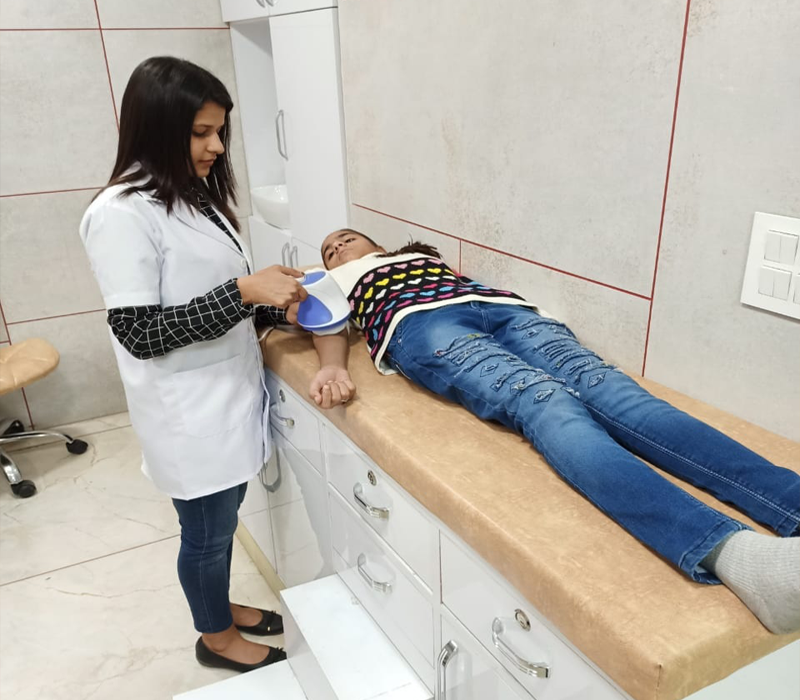 The term 'neurological disorder' refers to conditions that arise from dysfunction in parts of the brain, spinal cord, and/or peripheral nerves. This can result in difficulties with movement, muscle tone, strength, sensation, balance, etc., impacting a child’s ability to perform tasks like other healthy children.
The term 'neurological disorder' refers to conditions that arise from dysfunction in parts of the brain, spinal cord, and/or peripheral nerves. This can result in difficulties with movement, muscle tone, strength, sensation, balance, etc., impacting a child’s ability to perform tasks like other healthy children.
The role of physiotherapy in neurological disorders is to provide a detailed assessment and treatment plan to ensure that the child functions at the highest possible level. Physiotherapy helps children gain confidence and enhances their self-esteem by promoting independence.
The physiotherapist’s assessment serves two primary purposes:
• To identify children with disabilities who require physiotherapy and related services;
• To document impairments, assess their severity, and provide baseline information to develop intervention goals and objectives.
Physiotherapists provide services to children with disabilities in four main areas:
Improving motor function
• Maintaining/Improving Range of Motion (ROM):
After a thorough assessment, the current issues are identified. ROM exercises involving stretching and muscle-lengthening are prescribed to prevent deformities and reduce contractures.
• Enhancing motor experiences:
This is achieved through individualized exercise programs that integrate tactile, visual, auditory, proprioceptive, kinesthetic, and vestibular input.
The therapist’s knowledge of typical developmental patterns helps prevent undesirable postural changes.
Improving balance supports the development of neck and trunk control and enables the child to perform tasks with better coordination and control.

Dr. Pooja Gautam
Physiotherapist